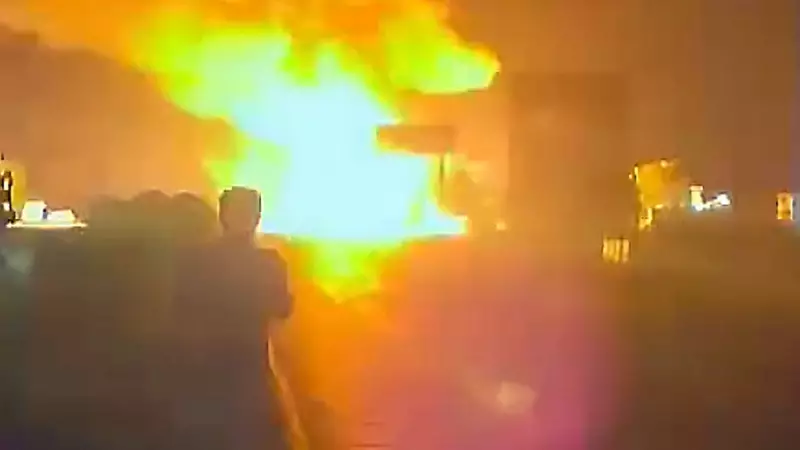
A quiet residential neighborhood in Ludhiana's Haibowal area turned into a scene of chaos and destruction on Friday when a massive explosion ripped through a house storing illegal chemical materials. The blast, caused by improperly stored potash, left ten people injured and sent shockwaves through the entire community.
The Aftermath of the Explosion
Emergency services rushed to the scene where they found the house partially destroyed and neighboring properties damaged by the force of the explosion. Windows shattered in nearby homes, and debris was scattered across the street as panicked residents emerged to assess the damage.
"The sound was deafening," described one local resident. "We thought it was an earthquake at first, but then we saw the smoke and people running from the house."
Victims and Rescue Operations
Among the ten injured were several children who were playing nearby when the explosion occurred. All victims were immediately transported to nearby hospitals, with some suffering serious injuries from flying debris and the blast impact.
Medical authorities confirmed that while most injuries were not life-threatening, several victims required extensive treatment for burns and trauma. The quick response from emergency services prevented what could have been a much greater tragedy.
Illegal Chemical Storage Exposed
Preliminary investigations revealed that the homeowner was illegally storing large quantities of potash, a chemical compound commonly used in fertilizers and industrial applications. The material is known to be hazardous when improperly handled or stored in large quantities.
Local authorities expressed grave concern about the growing trend of residential properties being used for dangerous chemical storage. "This is not an isolated incident," noted a senior police official. "We have seen increasing cases of residential areas being misused for storing hazardous materials."
Official Response and Investigation
The Ludhiana Police have registered a case against the property owner under relevant sections of the Explosive Substances Act. A thorough investigation has been launched to determine how such dangerous materials came to be stored in a residential area and whether proper safety protocols were followed.
Municipal authorities have also initiated checks on other properties in the area to identify any similar illegal storage operations. "We cannot have residential neighborhoods turning into chemical warehouses," stated a city official. "The safety of our citizens is paramount."
The incident has raised serious questions about regulatory oversight and the need for stricter enforcement of safety norms in urban areas where residential and commercial activities increasingly overlap.





